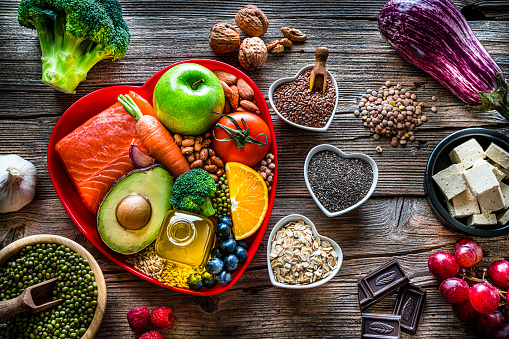The feeling of being hungry is caused by many things. Some of them are being emotional, not getting enough sleep, or even drinking alcohol. These substances just make you feel hungry without any real reason.
Here is the quick guide about, a person who exhibits a physiological need to eat is most likely experiencing the sensation of hunger.
If you are not sure if you are hungry, look at your reaction to different foods. Some people react more strongly to sweet foods than they do to salty or spicy foods.
The feeling of hunger can be relieved by eating or drinking something with calories in it.
Even though it may seem like you have eaten enough calories one day, not getting the recommended number of calories every day will result in feelings of hunger later on in the day.
Another thing that can cause feelings of hunger are hormones and environmental factors such as temperature and smell stimuli.
For example, when you are in a room with no air conditioning it is very likely that you will start to feel hungry even though you have eaten.
Here are some points about Nutrition Flashcard and Quizzes-
1. Hunger is felt when the process of digestion begins.
As your stomach could make a few rumbles, it is possible to recognize the level of hunger. If you are not getting enough calories, you will feel hungry more often.
2. Hunger can be controlled in many ways.
It is possible to prevent the cravings for food by being active or being in an environment that provides enough light or heat when the sun goes down.
However, when you are in a situation when you are unable to do so, try using snacks that are easy to carry with you, are low in calories and are high in energy.
3. Over consumption of food can lead to feelings of hunger.
This can be caused because your stomach is not full. You should eat enough foods that will take up all the space inside your stomach including whole foods like breads and rice without forgetting vegetables and fruits too.
4. Eating a lot of food is a good way to avoid feelings of hunger.
However, it is not always better to have a large number of calories.
When you eat a lot, your body has to process the nutrients faster and then it will be easier for your body to realize that you are full.
5. You can get more energy from food that is high in nutrients.
Some foods create energy in your body by increasing blood sugar levels while others give energy through cholesterol and fats which are found in low-fat foods like vegetables and fruits.
6. The feeling of hunger is caused by the processes of digestion.
When you eat your stomach needs energy to digest the food that has been ingested. It does this by releasing acids in your stomach which are known as hydrochloric acid and pepsin.
If your stomach is empty it will not produce enough acids to digest the food that has gone into it.
7. You should eat foods that are high in nutrients.
These foods will give you more energy for this process of digestion and they provide necessary micronutrients, proteins, lipids and carbohydrates which are required for growth by bones, muscles, heart, brain and other organs in your body.
8. The process of digestion should take place in several stages.
After ingestion of food, it should go to the stomach where the process of digestion begins by producing hydrochloric acid and pepsin.
Then, during this phase fluids are produced which are known as chyme and these fluids should be released by the pyloric sphincter.
When you release these fluids it is necessary for them to be mixed with bile that comes from your liver and pancreas. After that, the nutrients will move into your duodenum which is the first part of your small intestine.
9. The process of digestion can never be finished.
When it is finished, absorption of nutrients into the body will begin and substances like bile and enzymes that were produced during the process of digestion will be used with help from the pancreas and liver again. Then, nutrients will be absorbed by your small intestine which will travel to your bloodstream.
10. You should know what a healthy diet consists of.
This includes trying to eat the same amount every day, avoiding excessive intakes of processed food and not eating too much.
A healthy diet also includes milk products which include milk, yogurt, cheese and other dairy products as well as fish as a source of lean protein as well as fruits and vegetables which are good sources of vitamins and minerals.




